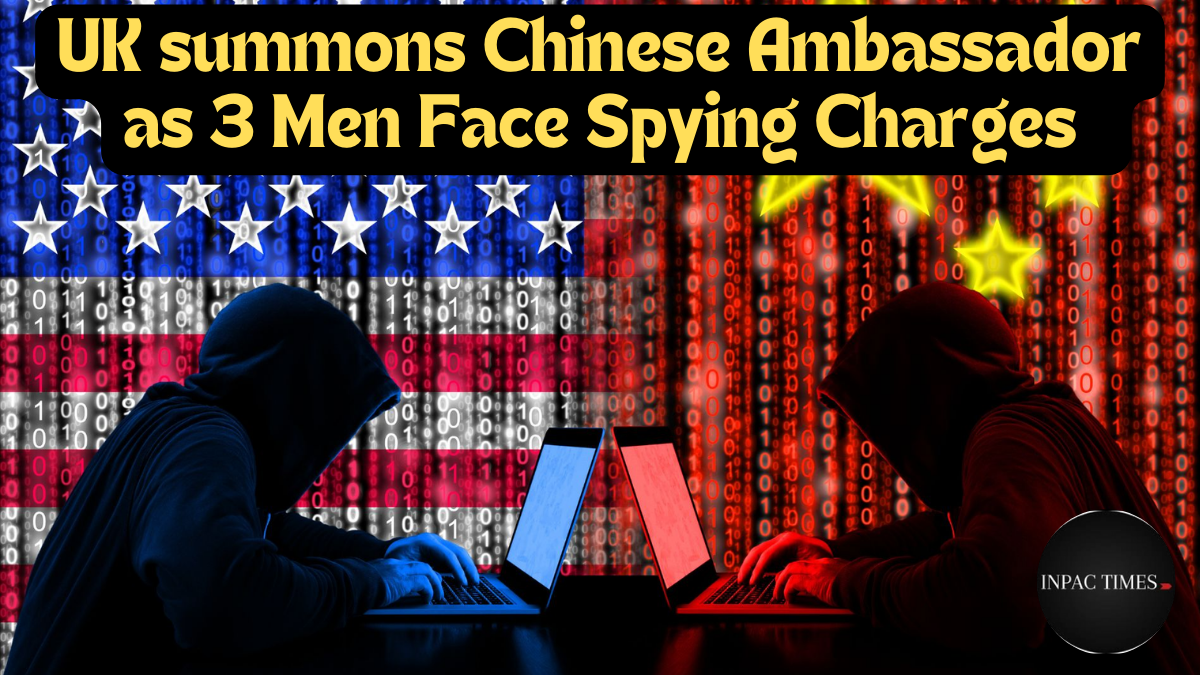Recent events have dramatically escalated tensions between the United Kingdom and China, bringing to the forefront issues of national security and international diplomacy. The UK government took the significant step of summoning the Chinese ambassador to address a series of serious allegations, signaling a potentially volatile shift in their bilateral relations.

UK-China Diplomatic Tensions Escalate
The UK’s relationship with China faced a significant challenge as the Foreign, Commonwealth and Development Office summoned Ambassador Zheng Zeguang. The UK government’s move comes in the wake of increasing concerns about China’s actions on British soil, described by Foreign Secretary David Cameron as a pattern of unacceptable behavior, including alleged cyber-attacks and espionage. The discussions with Ambassador Zheng aimed to convey the UK’s serious concerns directly to the Chinese government and highlight the need for transparency and adherence to international norms.
Charges Against Three Men
Amidst growing diplomatic tensions, three men were charged under the new National Security Act for allegedly assisting Hong Kong’s intelligence services. The charges allege that the accused were involved in covert operations that included gathering sensitive information, surveillance, and executing deceptive maneuvers designed to aid a foreign intelligence entity. This case highlights the UK’s vigilance in protecting its national security against what it perceives as foreign interference on its territory.

Backgrounds of the Accused
The individuals involved hold positions that are crucial to national security, which raises the stakes of the allegations. Chi Leung (Peter) Wai, not only a UK Border Force officer but also a volunteer special constable, Matthew Trickett, an immigration enforcement officer with a military background, and Chung Biu Yuen, a former Hong Kong police now working as a trade official, represent a significant breach of trust if found guilty. Their diverse roles in government and law enforcement underscore the potential for insider threats and the complexities involved in such cases of alleged espionage.

Hong Kong’s Response
Following the news of the charges, Hong Kong’s administration, led by John Lee, has expressed its concerns and requested more details from the UK government regarding the accusations. The surfacing of an old photograph of Lee with one of the accused added a personal dimension to the proceedings, although Lee has distanced himself from Yuen, claiming the photograph represents their only interaction. This development adds a layer of personal intrigue to the international diplomatic and legal drama unfolding.
Court Proceedings and Bail Conditions
The three accused appeared before Westminster Magistrates Court, where they were granted bail under strict conditions, reflecting the severity of the charges. The conditions imposed—such as curfews, travel restrictions, and monitored internet use—indicate the court’s intention to mitigate any ongoing risk they might pose while allowing the legal process to unfold. Their next appearance at the Old Bailey promises to be a critical juncture in a case that tests the UK’s resolve in prosecuting alleged foreign espionage on its soil.

China’s Strong Rebuke
In a robust response, the Chinese Embassy in London dismissed the allegations as baseless and criticized the UK for what it sees as provocative and unjustified actions. Ambassador Zheng’s statements at the meeting reflected China’s frustration and its stance that the UK should stop what he called “anti-China political maneuvering.” This exchange highlights the growing diplomatic rift between the UK and China, underscoring the challenges in managing bilateral relations amid accusations of espionage and interference.
Broader Context and Implications
The charges against the three men and the diplomatic exchanges that followed occur against a backdrop of heightened global tensions concerning China’s international activities. Earlier allegations of cyber-attacks on British infrastructure and political bodies have set the stage for an ongoing security dilemma involving China. The situation represents a significant challenge for UK-China relations and has broader implications for international security, potentially influencing alliances and policy decisions in Western capitals concerned with similar threats.
This evolving story not only affects the individuals involved and their communities but also shapes the geopolitical landscape, challenging established international relations and testing the resilience of global security frameworks.
Conclusion: Navigating a Diplomatic Minefield
The summoning of the Chinese ambassador marks a critical point in UK-China relations, reflecting broader tensions on the international stage. How the UK handles the unfolding legal and diplomatic challenges will be pivotal in shaping future interactions with China and maintaining global security standards. This situation underscores the delicate balance between national security and international diplomacy, requiring careful navigation to maintain peace and mutual respect in a rapidly changing geopolitical landscape.



